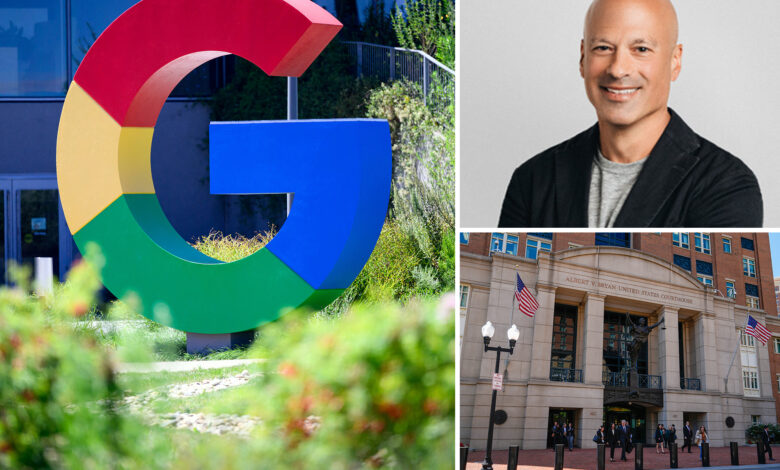Google exec said firm’s ‘goal’ was to ‘crush’ digital ad rivals: court docs

A Google executive boasted to co-workers the goal for the company’s budding online advertising business in 2009 was to “crush” rivals in the digital ad market, according to evidence presented Wednesday at the blockbuster federal antitrust trial targeting against the tech titan.
The Justice Department highlighted remarks made by David Rosenblatt, Google’s former president of display advertising, during the third day of the non-jury trial that alleges Google abused its control of digital market technology to siphon revenue from publishers and advertisers.
“We’ll be able to crush the other networks and that’s our goal,” Rosenblatt said regarding Google’s strategy at the time, according to documents reviewed in court.
The feds allege that Google operates a “trifecta of monopolies” through its control of tools on the buy and sell side of digital ad deals as well as the marketplace that connects businesses to advertisers. Google drains more than a third of every dollar spent through its ad platforms, according to the DOJ’s complaint.
In the notes discussed at trial, Rosenblatt, who joined Google after its now-controversial acquisition of digital ad software firm DoubleClick in 2007, reportedly bragged about the advantage by the company’s control of tools on all sides of the ad ecosystem.
“We’re both Goldman and NYSE. … Google has created what’s comparable to the NYSE or London Stock Exchange; in other words, we’ll do to display what Google did to search,” Rosenblatt wrote.
Rosenblatt also admitted it was a “nightmare” for publishers to try to switch to other ad platforms and said it “takes an act of God to do it,” according to the court documents.
On the witness stand, former Google executive Brad Bender told the court that he had forwarded Rosenblatt’s notes to his team at the time and described them as a “worthwhile read.”
Digital advertising comprises the bulk of Google’s total revenue, which exceeded $307 billion last year alone.
The trial will be decided by US District Court Judge Leonie Brinkema – who blasted Google during a pre-trial hearing for implementing a policy that automatically deleted employee chat records it should have preserved.
The DOJ has asked the court to break up Google’s adtech business – including a forced divestment of its Ad Manager product.
Google has argued that the DOJ’s case is based on a misunderstanding of how the digital ad market works. It also alleges that the court would risk causing chaos in the digital ad market and empowering other rivals like Amazon and Meta if it intervenes in the case.
The digital advertising trial is just one headache for Google. Last month, a federal judge ruled in a separate case that Google operates an illegal monopoly over online search.
The DOJ is similarly expected to pursue a breakup of Google during the remedy phase of that case.
With Post wires




